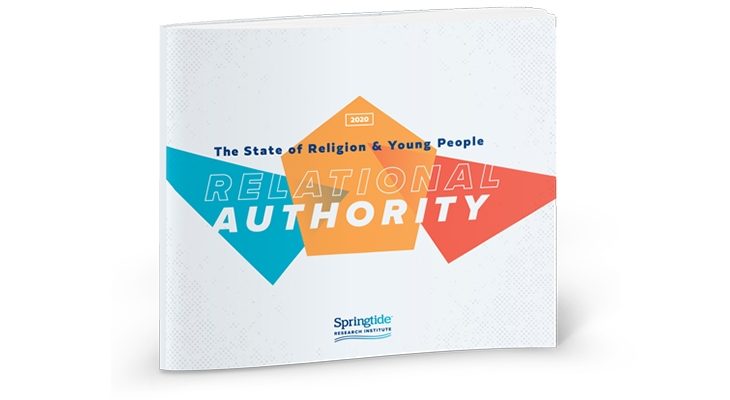Religion and Young People: Relational Authority and the Potatoes in the Basement
November 9, 2020

Kenji Kuramitsu is a clinical social worker, writer, and spiritual care professional. Kenji is a 2020 Interfaith America Racial Equity Fellow.
The inner lives of young people today abound in an apparent paradox. The most wired generation on record is also the loneliest; desire for non-partisan political exchange is soaring even as opportunities to engage in it are shrinking; traditional religious labeling is popularly eschewed, while other markers are retooled and reclaimed. Our standard categories also fail to capture the nuance of young peoples’ experience of meaning and belonging. Many of the denominationally “affiliated” disclose intense mistrust in their own faith institutions – even as many “disaffiliated” youth report startling rates of spiritual interest.
It is clear that new frameworks are needed to effectively serve and work with young people, and a major contribution in this area of research is Springtide Research Institute’s annual report: The State of Religion & Young People 2020: Relational Authority. The result of more than 10,000 surveys and qualitative interviews with over 150 young people aged 13-25, this report offers the largest domestically-available data set on this demographic. Drawing from insights from sociology, theology, and developmental psychology, the report accessibly reviews key findings and offers implementable recommendations for those committed to meaningful work with young people.
Presented in direct relationship to the ongoing wages of the COVID-19 pandemic and in light of the mass protests that swept the nation following the killing of George Floyd, the report asks pressing questions that defy easy resolution. Why does young people’s participation in religious groups or activities offer virtually no protective effect against feelings of isolation? What can those of all ages do to combat the rising rates of anxiety, depression, and hopelessness now commonplace among younger generations? Especially as that inner striving towards which we are all called may feel more distant than ever before.
Springtide offers a framework emphasizing the way that intergenerational, mentoring relationships produce all manner of good emotional fruit, and identifies “Relational Authority” as that special array of credentialed expertise alongside skills that take decades to cultivate well: listening, transparency, care, integrity. Trying on this frame for myself, I began recalling the kind mentors I had as an adolescent whose Relational Authority helped smooth things out during times when I felt most off-track, as well as strategizing about ways to offer a measure of that grace toward the young people in my own life.
As I engaged this text in conversation with colleagues, I couldn’t help but note the similarities between this report’s emphases and my own training as a psychotherapist. Successful outcomes in mental health treatment are directly linked to exactly the kinds of skills presented here as best practice for youth workers: boundaried and authentic self-disclosure, demonstration of care preceding exertion of influence, asking attuned questions and listening deeply to what is shared. I am certain that many effective carers, coaches, clergy, and clinicians will recognize the portraits painted here, and may feel validated by data that backs up what has felt true in their bones for a long time.
Lyotard famously summarized postmodernism as an “incredulity towards metanarratives” – a distillation that resonates with contemporary lament about the erosion of public trust in our civic institutions in the Trump era. Yet these trends have been long-ascendant, particularly for young adults who across the board report an utter lack of confidence in not only organized religion (considered less trustworthy than the banking system!) but also big medicine, Congress, and—perhaps unsurprisingly—the Presidency. Institutions that purport to serve young people must engage directly in the political and identity-driven conversations that are inextricable from most young people’’ lives; #DoBetterYoungLife is one example of what happens when communities don’t do this well.
Springtide’s report is careful to avoid the kind of alarmist, even moralistic panic about the fate of future generations sometimes characteristic of religious elders—one recalls Helen Lovejoy’s tortured refrain: “oh, won’t somebody please think of the children!?” Yes, there is much more work that needs to be done to better understand and honor the inner and outer lives of young people, particularly in a current moment that has revealed our interdependence and shared vulnerability. But… the kids are going to be alright. There is a dynamic and animating force within the testaments of the young people interviewed in this report. Reading reveals the stories of their flourishing: the ways they are growing and becoming, the novel ways they are seeking after and answering timeless questions. We can be hopeful that, as people of conscience, we can build the kind of strong and supportive bonds so utterly needed in our world: communities that are safe from exploitation and predation, and where no one feels lost in the crowd.
I can’t help but remember a story that the theologian turned therapist Carl Rogers used to tell about coming across a long-forgotten bin of potatoes in the basement of his childhood home. Even in the clammy dark of his family’s cellar, unfavorable as those conditions were, those spuds sprouted pale, thin tendrils that sagely, inexorably wound themselves towards the light falling from a window. Something embedded within each of us, not unlike those subterranean tubers, makes a movement toward life, nourishment, belonging. Rogers could not deny what he saw: “[even] under the most adverse circumstances, they were striving to become.”
Share
Related Articles
American Civic Life
American Civic Life
We Commemorate, We Commit: Out of Catastrophe, a Conversation on Connection and Repair
American Civic Life



